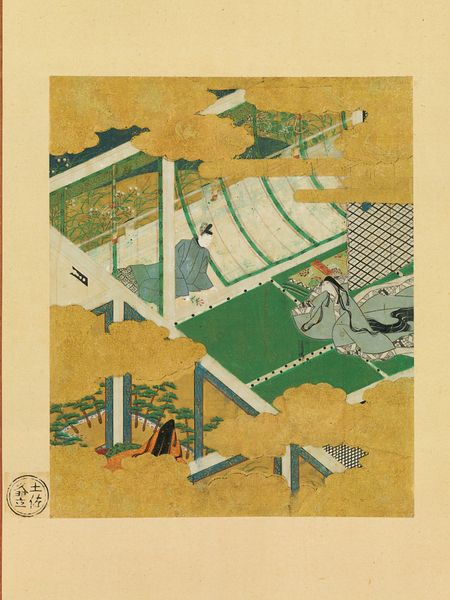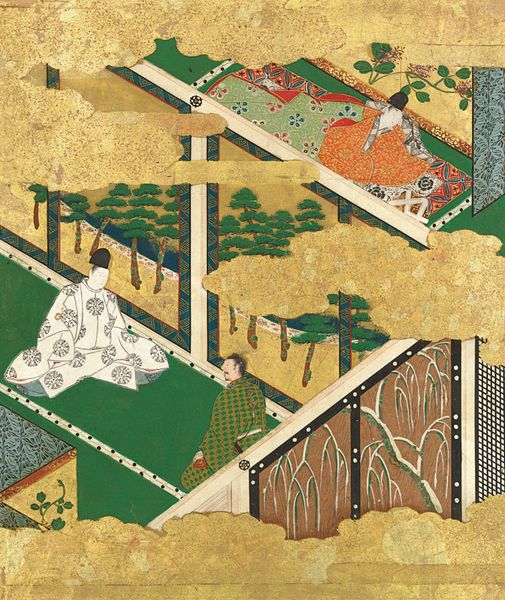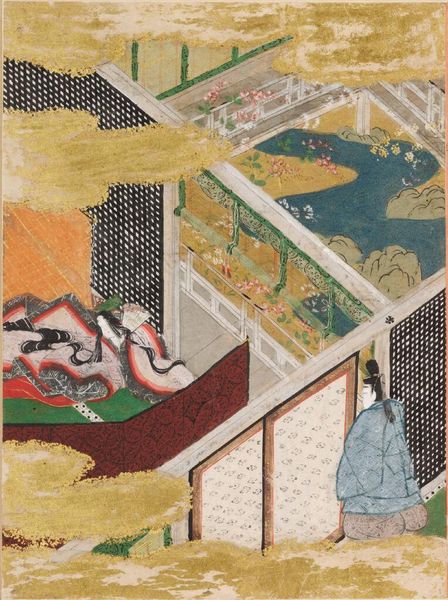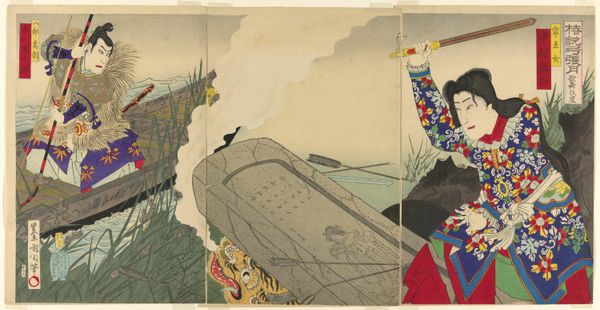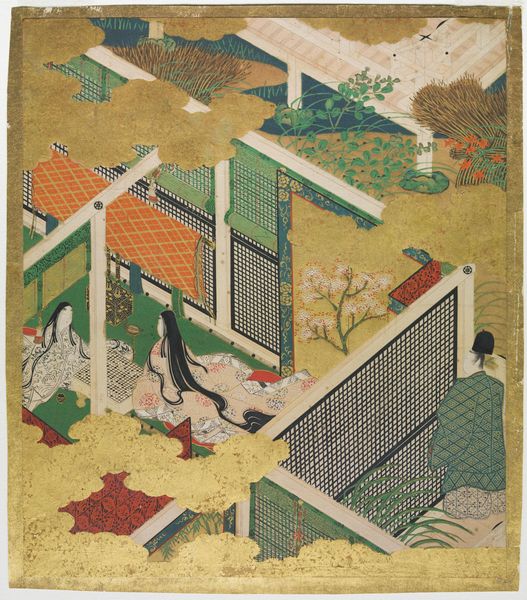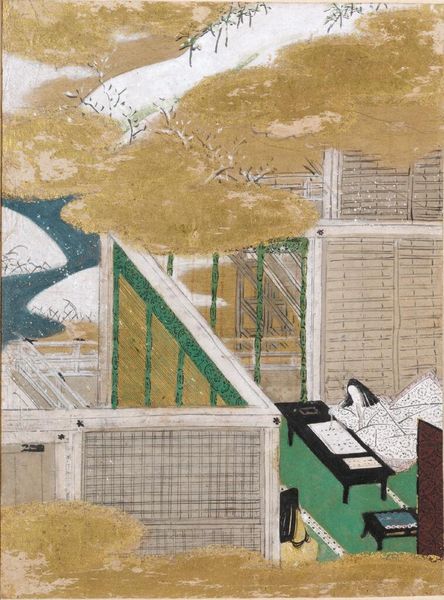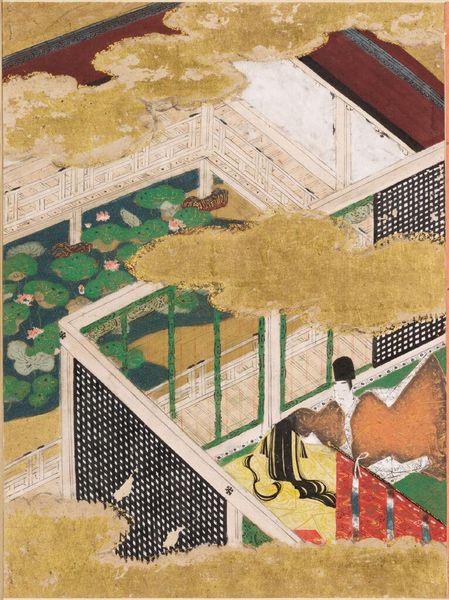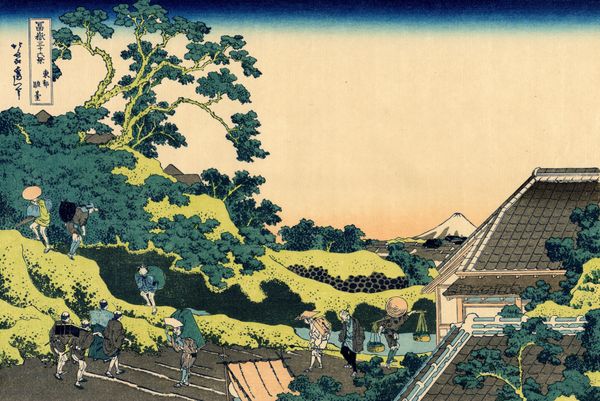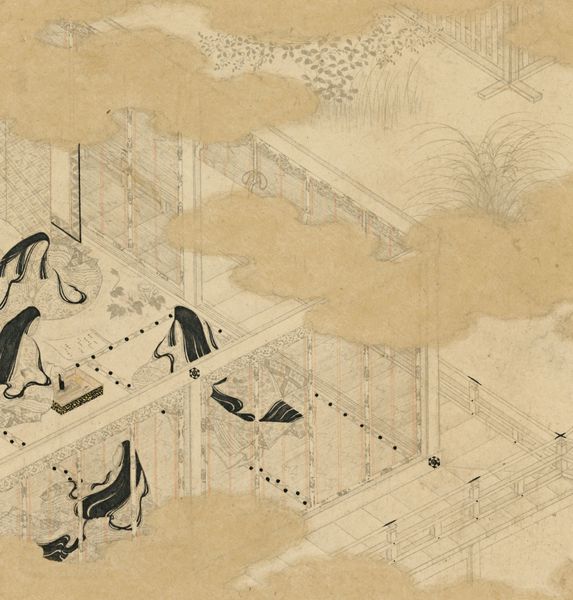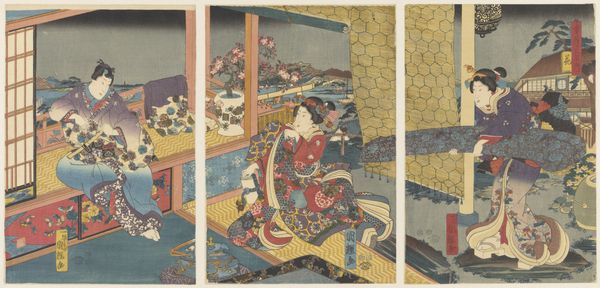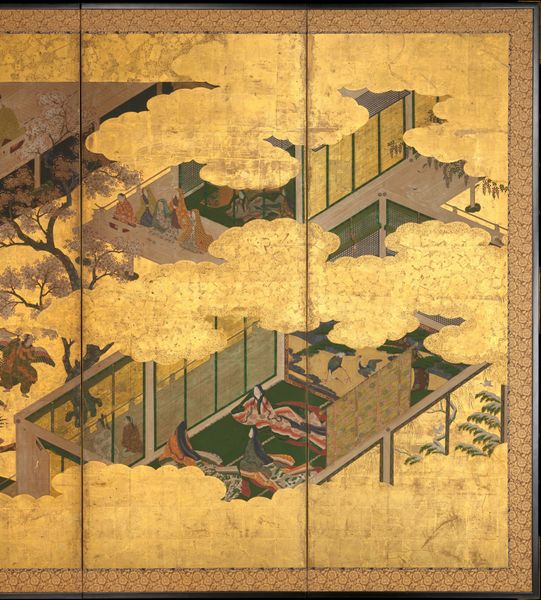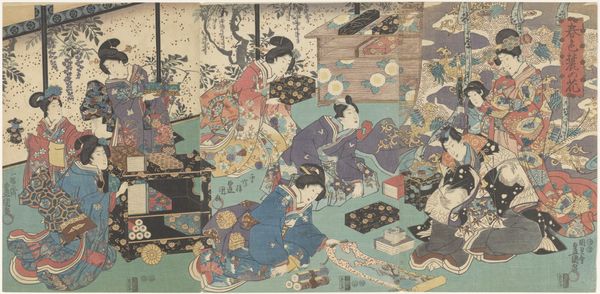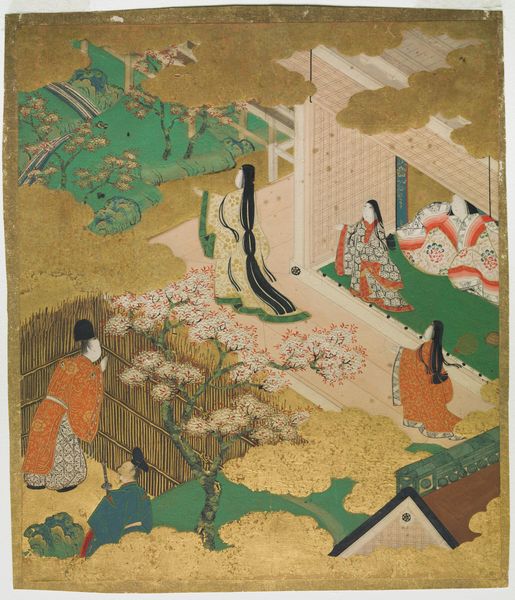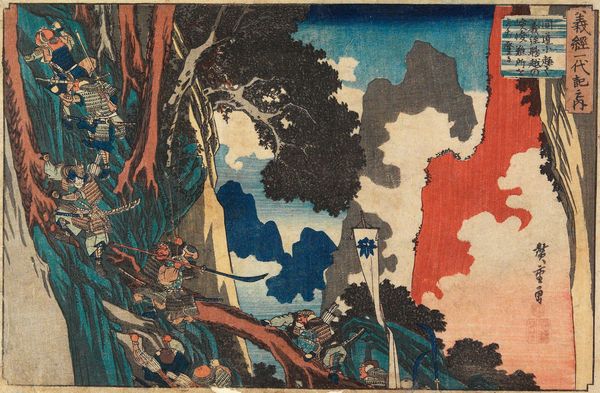
“A Lovely Garland” (Tamakazura), from The Tale of Genji 1600 - 1633
0:00
0:00
painting, watercolor
#
medieval
#
water colours
#
narrative-art
#
painting
#
asian-art
#
figuration
#
watercolor
#
group-portraits
Dimensions: Image (a): 9 5/8 × 8 3/8 in. (24.4 × 21.3 cm) Overall with mounting (a): 53 1/4 × 15 11/16 in. (135.3 × 39.8 cm) Overall with knobs (a): 53 1/4 × 17 3/8 in. (135.3 × 44.2 cm) Image (b): 9 7/16 × 8 3/8 in. (24 × 21.2 cm) Overall with mounting (b): 53 1/8 × 15 5/8 in. (135 × 39.7 cm) Overall with knobs (b): 53 1/8 × 17 3/8 in. (135 × 44.1 cm)
Copyright: Public Domain
Tosa Mitsuyoshi painted “A Lovely Garland” from The Tale of Genji with ink, color, gold, and silver on paper during the late 16th or early 17th century. It depicts a scene from a famous work of Japanese literature, offering a glimpse into the cultural and social world of the imperial court. The Tale of Genji, written centuries earlier, was a foundational text that shaped aristocratic values and aesthetic preferences. Mitsuyoshi’s painting revives and reimagines this classical world for a contemporary audience. Notice how the artist uses the visual codes of the Tosa school, known for its conservative approach, to evoke a sense of refined elegance and historical continuity. The work is consciously conservative, designed for a courtly audience keen to reinforce its cultural authority through the arts. Further research into the patronage of the Tosa school and the literary societies of the time would shed light on the social conditions that enabled the creation of this beautiful, if idealized, image of court life.
Comments
No comments
Be the first to comment and join the conversation on the ultimate creative platform.
